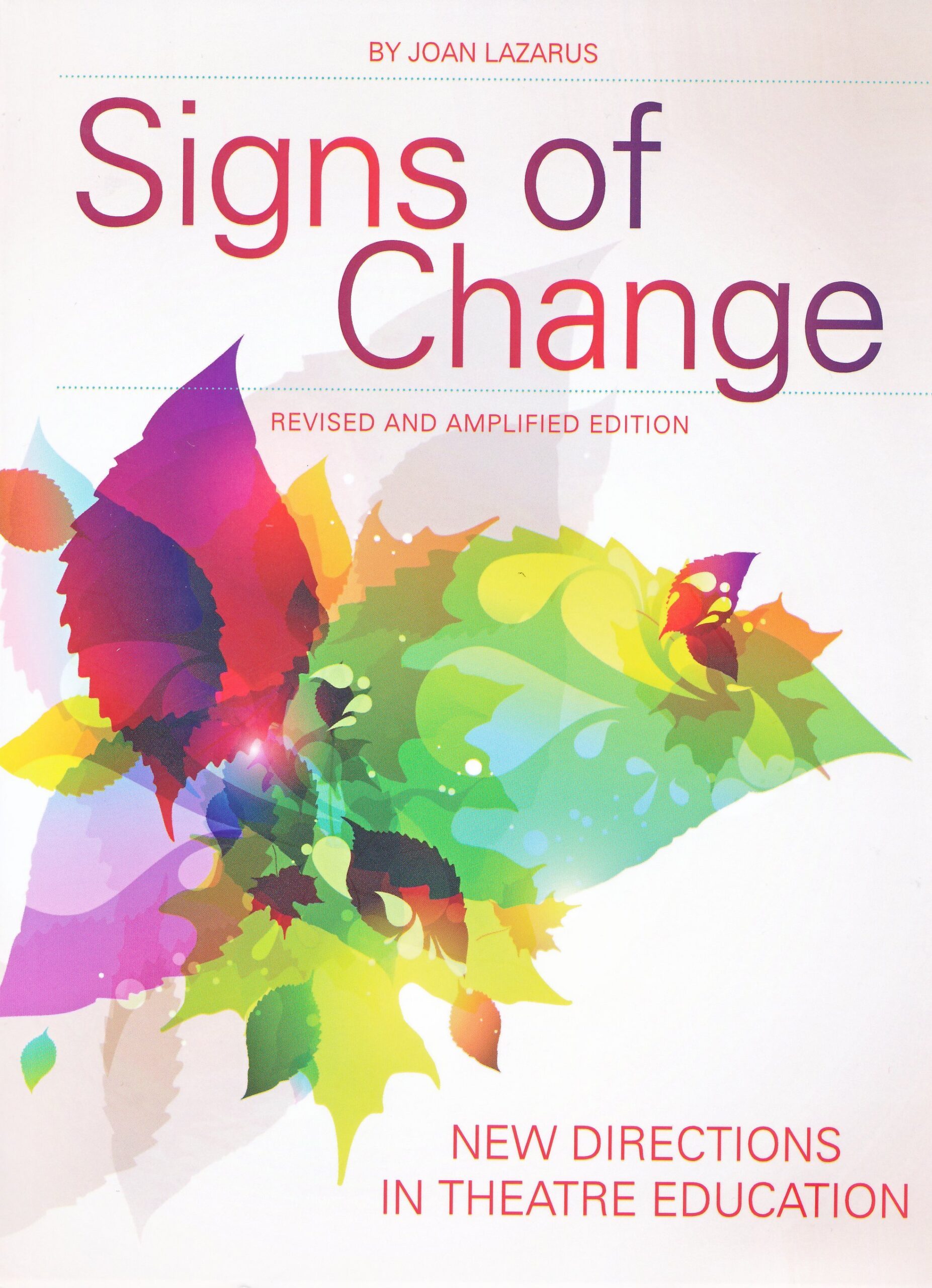
Signs of Change: New Directions in Theatre Education
Joan Lazarus’s invitation to “eavesdrop on voices from the field” of arts education has much to offer UK readers, says Roger Lang.
We do ‘drama’ in our state secondary schools; in the USA they teach ‘theater’ in their public schools. ‘Signs of Change’ sets out to present the best of (US) secondary school theatre within the context of an era of change and against a backdrop of the end of the industrial age. Joan Lazarus is an eminent and experienced theatre/drama educationalist, and is a professor and head of the theatre education programme at the University of Texas. She describes her book as an invitation to eavesdrop on “voices from the field”. This it most splendidly does, through contributions from over 200 people involved in the field of secondary education. So, what does this book have to offer UK teachers, drama practitioners and theatre companies working in our secondary schools?
It seems that there are strong parallels between the progressive ambitions of many teachers and practitioners here and those of our peers in the USA. Signs of Change contains exercises to help teachers examine their paths and directions, and some wonderfully informative, detailed, and heartfelt testimonies from experienced US teachers, educationalists and policy makers. There are also sections containing examples of learning-centred lessons, rehearsal plans and exercises, together with ideas for further reflection, selected resources and notes.
Joan Lazarus presents strong testimony to support her view that, despite the trappings of reform in US public schools, thinking is fixed in the concept of schools as factories – a “schooling machine” model of education – stuck in a past age (like the mind-set our own Secretary of State for Education, Gradgrind Gove.) Might theatre teachers bring another view of education to the table? Many here and in the US have and are. The book supports the view that a learner-centred (as opposed to teacher-centred) approach is socially responsible, provocative and connected to the world in which the students live. I would add that it should also open windows to ideas, culture and alternatives that exist outside their world. As Tolkien put it, “Not all who wander are lost.”
Also pertinent to current debate in the UK is the quoted view of Kim Wheatley of the Southeast Center for Education in Tennessee, that theatre must be perceived as an academic discipline relevant to all students rather than an extra-curricular activity for a selected few.
Joan Lazarus believes that theatre in US secondary schools is on the verge of change, still at the crossroads with traditional practice, barely grasping other possibilities. We like to think our work is further along the road here, but there are threats to drama as a subject in our schools and to the training and status of our drama teachers. Signs of Change is a book for practitioners who love education, and theatre education in particular, too much to let it sink to its lowest form. AsMahatma Ghandi urged:“Be the change you want to see in the world.”
Roger Lang is Capital Project Manager at Oily Cart.
Oily Cart is currently rolling out three versions of TUBE, a kinaesthetic adventure for children under 11: for children with profound and multiple learning disabilities, for children on the autistic spectrum, and for the under 2's.
Join the Discussion
You must be logged in to post a comment.